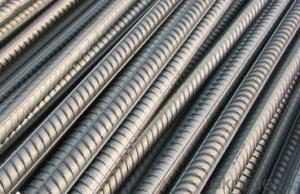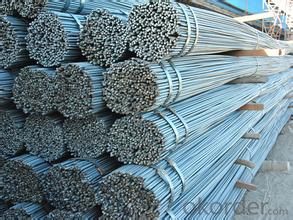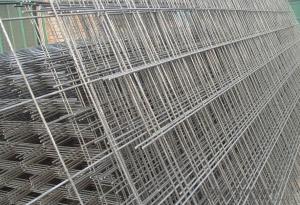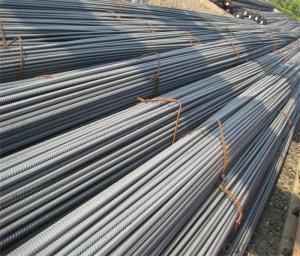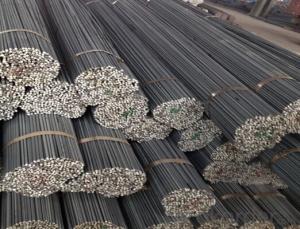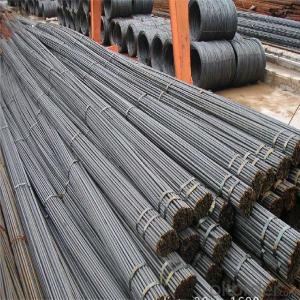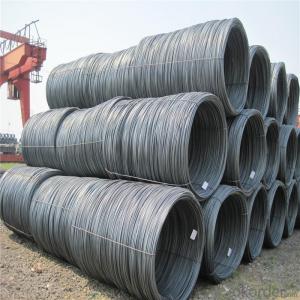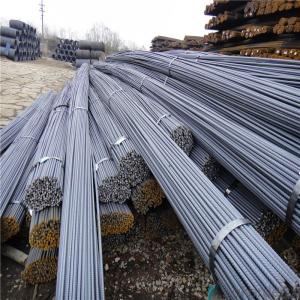High Tensile Steel Rebar ASTM BS4449 Rebar Steel
- Loading Port:
- Tianjin
- Payment Terms:
- TT or LC
- Min Order Qty:
- 100 m.t.
- Supply Capability:
- 5000 m.t./month
OKorder Service Pledge
OKorder Financial Service
You Might Also Like
High Tensile Steel Rebar ASTM BS4449 Rebar Steel
Structure of High Tensile Steel Rebar:
Type | Deformed steel bar/ TMT bars | MOQ | 500 MT (Trial order accepted) |
Standard Grade | GB1499.2-2007, HRB335, HRB400, HRB500. BS4449/2005, B500A, B500B etc.. ASTM A615 Gr.40, Gr60, KS, SD400, SD500 and so on.. | ||
Technique | Hot rolled continuous casting | Length | 6, 9,12m, or as requested |
Size | 6mm-32mm | Payment terms | T/T, L/C at sight, Usance L/C |
Packing | In bundle | Inspection | Third party inspection accepted |
Trade terms | EXW, FOB, CFR, CIF | Trans terms | FIO, FILO, FLT |
Delivery time | 15-30 days, according to the quantity | Note | Customized service is available (for sizes,length and chemical components etc.). |
Main Features of High Tensil Steel Rebar:
HRB335 | Chemical composition | C | Mn | Si | S | P |
0.17-0.25 | 1.0-1.6 | 0.4-0.8 | 0.045 Max. | 0.045 Max. | ||
Mechanical Property | Yield strength | Tensile strength | Elongation | |||
≥335 Mpa | ≥455 Mpa | 17% | ||||
HRB400 | Chemical composition | C | Mn | Si | S | P |
0.17-0.25 | 1.2-1.6 | 0.2-0.8 | 0.045 Max. | 0.045 Max. | ||
Mechanical Property | Yield strength | Tensile strength | Elongation | |||
≥400 Mpa | ≥540 Mpa | 16% | ||||
HRB500 | Chemical composition | C | Mn | Si | S | P |
0.25 Max. | 1.6 Max. | 0.8 Max. | 0.045 Max. | 0.045 Max. | ||
Mechanical Property | Yield strength | Tensile strength | Elongation | |||
≥500 Mpa | ≥630 Mpa | 15% | ||||
Specifications and Datas:
Deformed steel bar | ||||
Diameter (mm) | Theoretical weight (kg/m) | Pieces/Mt (pcs) | Length (m) | Standard |
6 | 0.222 | 375 | 12 | GB1499-48, HRB335, HRB400, HRB500 BS4449-97, Gr.460B,B500
|
8 | 0.395 | 211 | ||
10 | 0.617 | 135 | ||
12 | 0.888 | 94 | ||
14 | 1.21 | 69 | ||
16 | 1.58 | 53 | ||
18 | 2 | 42 | ||
20 | 2.47 | 34 | ||
22 | 2.98 | 28 | ||
25 | 3.85 | 22 | ||
28 | 4.83 | 17 | ||
32 | 6.31 | 13 | ||
36 | 7.99 | 10 | ||
40 | 9.87 | 8 | ||
50 | 15.42 | 5 | ||
FAQ:
Why choose us:
1. More than 10 years experience in this industry
2. 100,000 tons exporting per month
3. Professional foreign trade team
4. OEM&ODM capacity
5. High quality assured & competitive price
6. Try our best to meet your needs & save your budget
7. Very popular in Southeast Asia, Africa, Mid-East and South America etc.
8. VIP membership system, first time customers and long-term cooperation customers can get extra discount on some products.
Pictures:
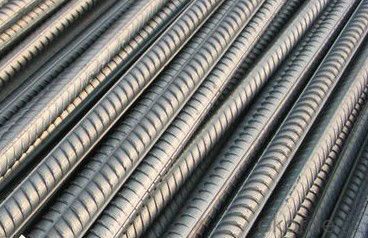
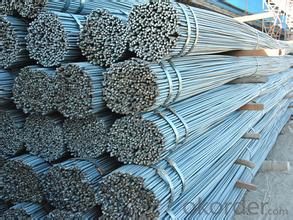
- Q: Can ductile iron pipes be used in high-pressure applications?
- Yes, ductile iron pipes can be used in high-pressure applications. Ductile iron has excellent mechanical properties and high tensile strength, making it suitable for withstanding high-pressure conditions. Its inherent toughness and durability allow it to handle the stress and pressure exerted on the pipes, making it a reliable choice for various high-pressure applications.
- Q: Can ductile iron pipes be used for water distribution networks in rural areas?
- Yes, ductile iron pipes can be used for water distribution networks in rural areas. Ductile iron pipes are known for their high strength and durability, making them suitable for various applications, including water distribution. They have excellent resistance to external loads and pressure, making them ideal for underground installations. In rural areas where the water distribution network may be subjected to harsh environmental conditions or agricultural activities, ductile iron pipes can withstand external forces and resist corrosion better than other materials. They are also less prone to cracking or leaking, ensuring a reliable water supply for rural communities. Moreover, ductile iron pipes have a long service life, often exceeding 100 years. This makes them a cost-effective choice for rural water distribution networks, as they require minimal maintenance and replacement over time. However, it is important to consider other factors such as the availability of ductile iron pipes in the area, the cost of installation, and the technical expertise required for their installation and maintenance. Additionally, local regulations and standards should be followed to ensure compliance and safety. Overall, ductile iron pipes can be a suitable and reliable option for water distribution networks in rural areas, providing a long-lasting and efficient solution for delivering clean water to communities.
- Q: Are ductile iron pipes suitable for oil and gas pipeline applications?
- Indeed, oil and gas pipeline applications can benefit greatly from the suitability of ductile iron pipes. With a multitude of properties that make them ideal for such uses, ductile iron pipes are a wise choice. First and foremost, the high tensile strength possessed by ductile iron pipes enables them to effectively handle the immense pressure and stress associated with oil and gas transmission. This ensures their ability to withstand the rigorous conditions and maintain their structural integrity over time. Additionally, ductile iron pipes exhibit exceptional resistance to corrosion. Given that oil and gas pipelines are exposed to various corrosive elements, such as water, chemicals, and salts, ductile iron pipes are equipped with a protective lining, typically composed of cement mortar or polyethylene. This lining effectively combats corrosion and prolongs the lifespan of the pipes. Moreover, ductile iron pipes boast impressive durability and longevity. With a service life typically spanning from 50 to 100 years, depending on specific conditions and maintenance practices, they prove to be a reliable choice for oil and gas pipeline applications. Consequently, the need for frequent replacements is reduced, resulting in minimized downtime. Furthermore, the flexibility inherent in ductile iron pipes allows them to endure ground movement and absorb shocks and vibrations. This flexibility is especially crucial in oil and gas pipeline applications, where the pipes must adapt to ever-changing terrain and environmental conditions. Lastly, ductile iron pipes offer a cost-effective alternative to other commonly used materials in oil and gas pipelines, such as steel. Striking a favorable balance between performance and price, they emerge as a practical choice for pipeline projects of varying scales. In summary, the combination of high tensile strength, corrosion resistance, durability, flexibility, and cost-effectiveness renders ductile iron pipes highly suitable for oil and gas pipeline applications.
- Q: Can ductile iron pipes be used for industrial applications?
- Yes, ductile iron pipes can be used for industrial applications. Ductile iron pipes offer excellent strength and durability, making them suitable for various industrial sectors such as water and wastewater treatment plants, chemical processing facilities, and power plants. They can withstand high-pressure conditions, resist corrosion, and have superior impact resistance, making them an ideal choice for industrial applications.
- Q: Can ductile iron pipes be repaired if they are damaged?
- Yes, ductile iron pipes can be repaired if they are damaged. Various repair methods, such as spot repair or full line replacement, can be employed depending on the extent and nature of the damage. Experienced technicians can assess the damage and determine the most suitable repair technique to restore the functionality and integrity of the ductile iron pipes.
- Q: Can ductile iron pipe be used for industrial wastewater applications?
- Yes, ductile iron pipe can be used for industrial wastewater applications. It has excellent strength, durability, and corrosion resistance, making it suitable for handling various types of wastewater in industrial settings. Additionally, ductile iron pipe is known for its ability to withstand high-pressure and high-temperature conditions, making it a reliable choice for industrial wastewater applications.
- Q: Are ductile iron pipes resistant to alkaline attacks?
- Generally, ductile iron pipes have resistance against alkaline attacks. Ductile iron is renowned for its durability and ability to resist corrosion, making it suitable for a range of applications, including water and wastewater systems. Certain metals can experience corrosion from alkaline substances, such as high pH levels in water or chemicals. However, ductile iron has been specially engineered to withstand these conditions. Its composition, which includes the addition of alloying elements like nickel and chromium, enhances its resistance to alkaline attacks. Moreover, ductile iron pipes are frequently coated with protective substances like cement mortar or polyethylene, which further increase their resistance against alkaline substances. Nevertheless, it is important to consider that the specific resistance of ductile iron pipes to alkaline attacks can be influenced by various factors, such as the concentration and duration of exposure to alkaline substances, as well as the presence of other corrosive agents. Therefore, it is always advisable to consult with manufacturers or industry experts to ensure the appropriateness of ductile iron pipes for specific alkaline environments.
- Q: What is the expected pressure rating for ductile iron pipes?
- The expected pressure rating for ductile iron pipes typically ranges from 150 to 350 psi.
- Q: What is the ductile cast iron pipe
- Have not heard of the nodular cast iron pipe pipe, ductile iron may be a tube or a certain short tube is referred to as excellent grade.
- Q: What is the difference between flexible joint mechanism and seismic cast iron pipe DN100 and ductile iron pipe?
- Nodular cast iron has high strength and strong plasticity. The tensile strength of ductile iron is twice that of gray iron, and the yield strength even exceeds that of cast steel.
Send your message to us
High Tensile Steel Rebar ASTM BS4449 Rebar Steel
- Loading Port:
- Tianjin
- Payment Terms:
- TT or LC
- Min Order Qty:
- 100 m.t.
- Supply Capability:
- 5000 m.t./month
OKorder Service Pledge
OKorder Financial Service
Similar products
Hot products
Hot Searches
Related keywords
